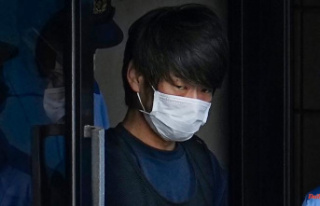Cooler in winter, warmer in summer: This is how the federal states' concept for saving energy can be summed up. State parliaments and state governments agree that in the future energy will not only have to be saved in private households. It is also about public buildings, authorities and street lighting.
In view of the looming energy crisis in Germany, the state governments and parliaments want to use electricity and gas more sparingly. Many cabinets and state parliaments are currently considering heating rooms less in winter and turning down the air conditioning in summer, according to a survey by the German Press Agency.
Berlin's Senator for Economic Affairs, Stephan Schwarz (independent), demanded that the public sector have to turn the energy regulator just like private households and companies. "Of course, the functionality of the authorities and occupational safety must be maintained, but otherwise I see no taboos," he emphasized. The Berlin Senate has set up an interdepartmental task force. "The goal is for all Senate departments to identify further potential savings of at least ten percent by August at the latest." The state parliament of Rhineland-Palatinate is already making savings. The air conditioning only cools the building down to 24 degrees instead of 21 degrees, as a spokesman said.
The Saarland state parliament, on the other hand, is only planning savings measures in winter: the temperature of the heating should then be reduced from 22 to 20 degrees, it said. In Baden-Württemberg, 20 degrees is already normal in winter - the Ministry of Finance is currently considering heating the offices of the state employees to a maximum of 18 degrees in winter. One is open to the federal government amending the workplace ordinance accordingly, said the ministry spokesman. When it comes to cooling in the summer, no one wants to change anything in the southwest - unlike in the federal government, cooling there has only been for a long time from 26 degrees.
As a possible solution, one from the times of the corona pandemic is also being brought into play: For example, the Ministry of Finance in Schwerin is examining whether the increased use of home office would be a way of saving energy. In North Rhine-Westphalia, state administration buildings could soon only be heated in part. The possibility arises from "changed work situations" such as home office regulations, according to the Ministry of Finance in Düsseldorf.
The plans of the Bundestag are already more concrete. The Council of Elders decided on Thursday that the offices for MPs, their employees and the Bundestag administration should only be heated to 20 instead of the previous 22 degrees in winter. While the air conditioning systems used to ensure a pleasant 24 to 26 degrees in summer, depending on the outside temperature, it will be 26 to 28 degrees in the future. The topic of saving energy is also pressing in the cities. "Even now we all have to save every kilowatt hour that is possible," said City Council President Markus Lewe to the newspapers of the Funke media group. Everything belongs to the test - and the cities are already trying to make a contribution. Lewe mentioned reducing street lighting at night and less hot water in public buildings as possible measures.












